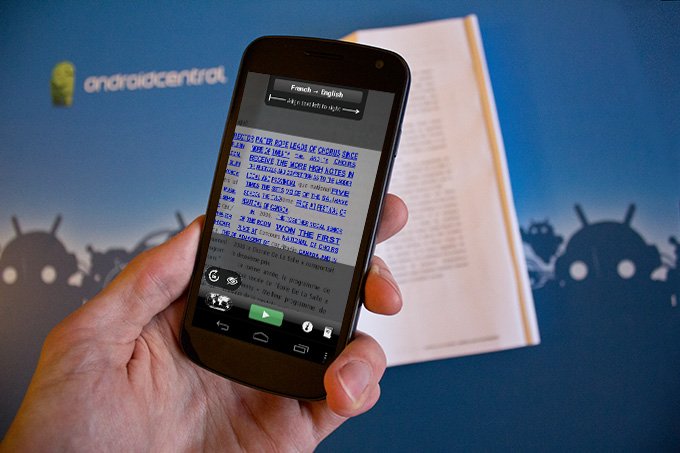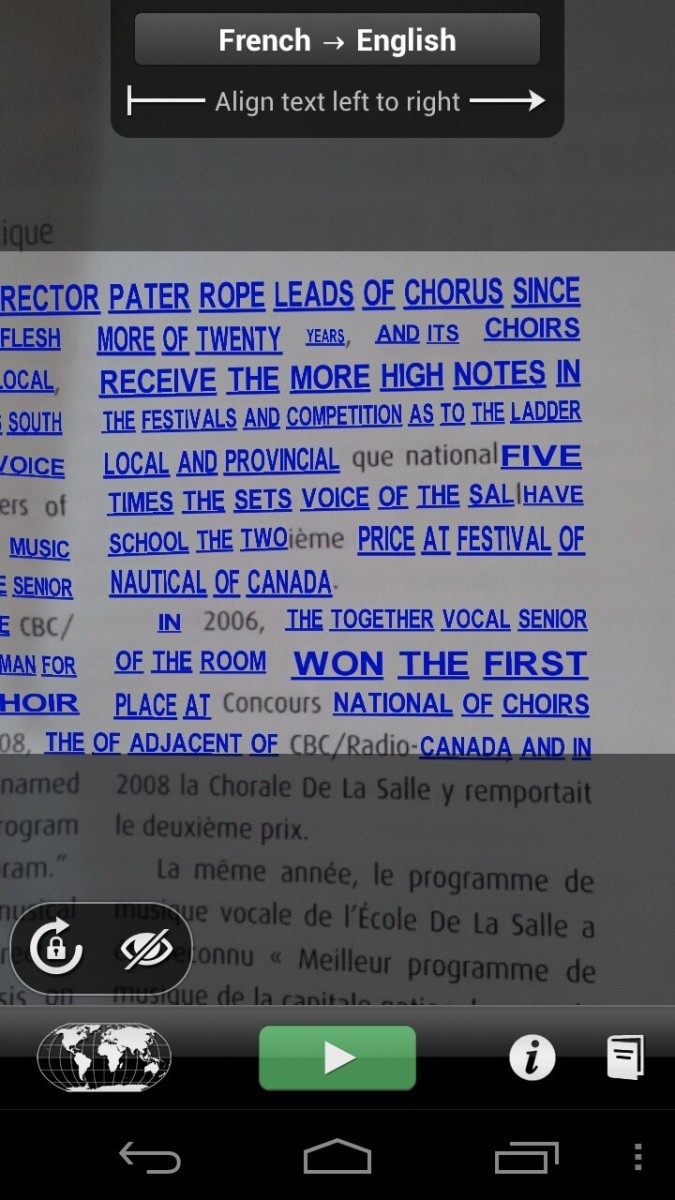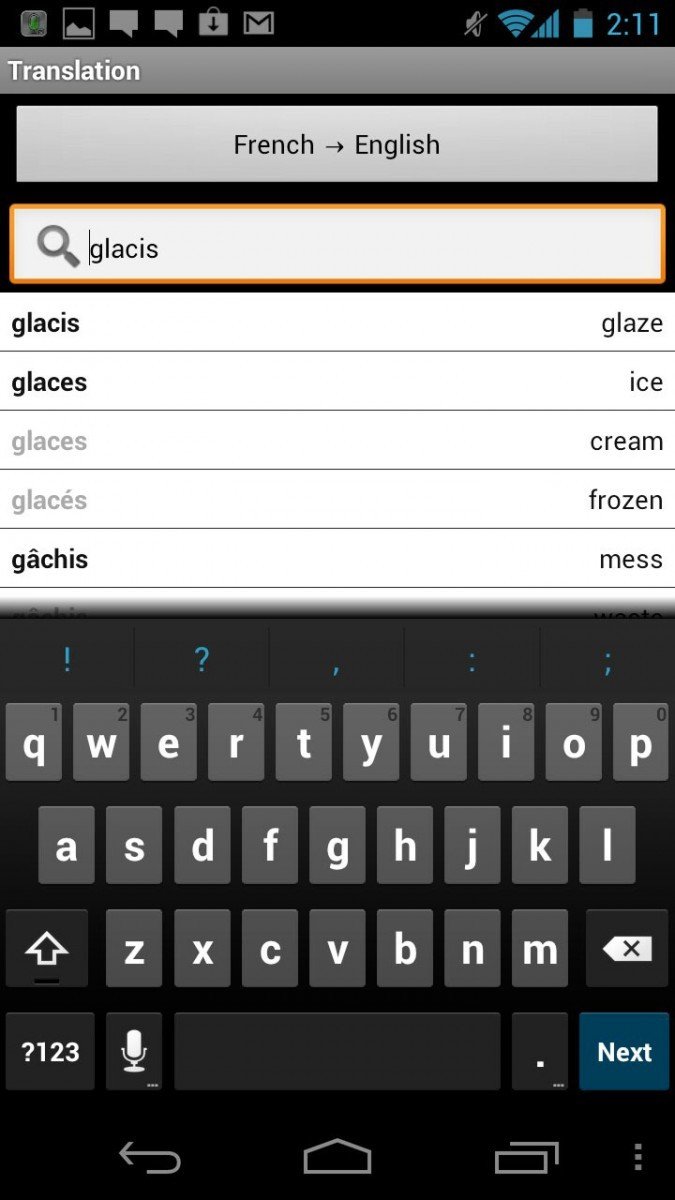Word Lens review - great translations for single words

Word Lens arrived on Android last month, promising the uncanny ability to translate text from a live camera feed from your device. The demo video would have you believe that simply pointing your phone's camera at a sign would magically recreate that sign on your display with fully translated text.
For $4.99, users get two-way translation between English and one language of choice: Spanish, French, or Italian. Anything beyond the first costs an extra $4.99 After the camera focuses on the text you're aiming to translate, a pause button allows users to capture the translated text with each word linked so that you can tap them and see compare it to the translation.
Functionality
Historically, Google translations have produced hilariously awkward results, but now the quality is good enough to figure out what's being said without having to do too much creative interpretation. Unfortunately, lengthier results generated from Word Lens still requires some significant effort to fully understand.
The biggest problem with the current Word Lens translation system is that it's processing individual words rather than whole sentences. It's rare that word-for-word translation makes any sense - there's a wide variety of meaning dependent on context, nevermind syntactical differences between English, French, Spanish and Italian that can make translations really difficult to follow. These issues are only compounded by iffy reliability of text recognition and camera quality. My best guess is that this single-word set-up is required for translations to occur locally without having to reach up to the cloud and generate more robust translations.
Google Translate is doing a decent job of translating the spoken and written word, but it isn't producing results in real time, and that's the major selling point of Word Lens; even in instances where you have the time and bandwidth for processing, it can be hard to get Google Goggles to offer a translation option (since it's scanning for so many other different kinds of content) and have it capture the amount of text you're looking to translate. Meanwhile, the dedicated Google Translate app is primarily focused on speech with no option to capture text by camera.
All-in-all, Word Lens does reasonably well for isolated words like you might find on road signs or menus, but not particularly well for longer sentences. The fact that you have to pay for multiple languages is a bit of a stinging point, but it's easy to imagine the developer simply releasing multiple, separate apps for each language instead.
Style
Word Lens gets major points for originality. I can't imagine a single traveler who wouldn't love having this app at a foreign airport when time is of the essence. The way words twitch incessantly while being processed and repositioned to cover up original text is a little crazy, but there are some really smart usability tweaks to get around that.
Get the latest news from Android Central, your trusted companion in the world of Android
For one, you can set rotation lock on or off. Word Lens has to know which direction you're looking at the text from, but that rotation lock makes it easy to switch to and from portrait and landscape. Being able to view the original scanned image with a single button hold is really helpful if you already know a few words in a language and want to double-check what Word Lens provided as a translation. Finally, being able to pause the image processing is absolutely necessary, because it's pretty much impossible to read while translation is active.
The good
- Original, futuristic idea
- Fast
The bad
- Lengthy translations hard to interpret
- Microtransactions required for multiple languages
Conclusion
For individual words, Word Lens performs admirably, but don't expect, clean and concise translations of longer phrases, let alone full paragraphs. It's really too bad that Word Lens doesn't currently offer quite the utility it advertises, but it's still a novel concept and makes significant strides towards creating an awesome future without language barriers. For casual, simple, speedy translations, Word Lens will likely be good enough, but it is far from a full replacement for Google Translate.
The best-case scenario for Word Lens is that it offers both local translations as well as cloud-based ones, that way you could get the rough gist of a phrase without having to worry about processing time or roaming fees, but still having the ability to refine results into properly-formed sentences in the right circumstances. As is, Word Lens is successful as a novelty and a decent translation tool for individual words (if not whole sentences).
Download: Word Lens ($4.99)



